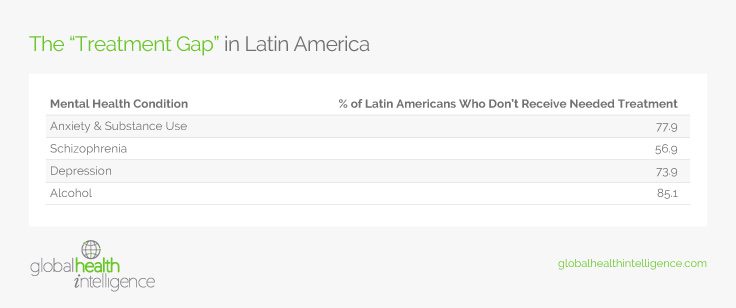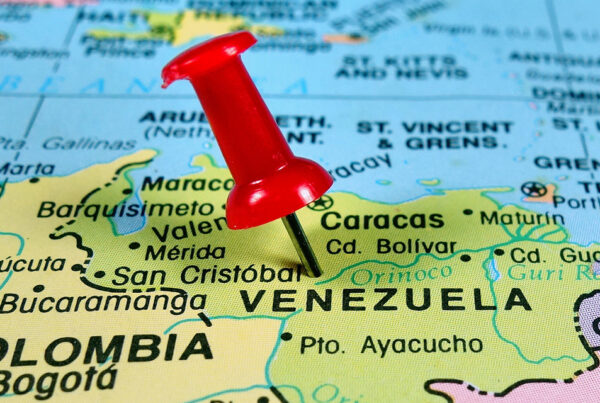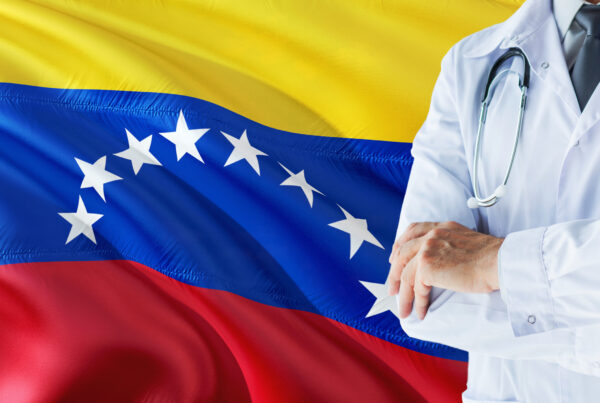By Mariana Romero Roy
The story of mental health in Latin America is an indicator of the unique duality of the region itself. On one hand, the region is one of the happiest in the world, according to the 2023 World Happiness Report. Factors such as strong family ties, tight communities and friendships and regular church attendance all play a role in this.
On the other hand, people in Latin America may also be less likely to get the help they need for mental health issues. Ironically, some of the same factors that make the region so happy are contributors here, as well. From a cultural standpoint, people suffering from depression, anxiety and other disorders may be more likely to keep it to themselves rather than disrupt the social order of the region.
What the Numbers Show
Though nobody would argue that close families and tight communities are a negative factor, the truth of the matter is that the numbers point toward a growing mental health crisis in the Latin American region. Across the board, people who need help for various mental health issues in Latin America do not receive it:

A Rising Problem in the Region
At the same time, the impact of mental disorders is rising, not only in Latin America but around the world. Several factors are at play here, including the lingering effects of the COVID-19 pandemic on people, as well as the fact that people are living longer, which makes mental health issues more likely to occur among the elderly.
Younger people in the Latin American region also have their fair share of mental health issues. More than 16 million people age 10 to 19 in Latin America have a mental health disorder, and the suicide rate rose 6 percent between 2000 and 2019. Suicide is the third leading cause of death in the region among children age 15 to 19.
How the Region Is Responding
Clearly mental health is a growing concern in Latin America, and governments and major health organizations are beginning to take steps to address it. Though it was many years ago, a major turning point in the history of mental health in Latin America was the signing of the Caracas Declaration in 1990 by the countries of Latin America. The objective of this declaration was to promote respect for the human and civil rights of the mentally ill, and it had a major impact on mental health moving forward. By the year 2000, research showed that most Latin American countries had integrated mental health programs into their primary care facilities, and mental health services were covered by public health plans.
However, despite these advances, the treatment gaps shown in the table above clearly indicate that more work is needed in this area. Despite the prevalence of mental health programs, mental health staff and resources remain scarce, and some areas have greater access to the services than others. Funding also remains a major issue: Only about 2.8% of total government health spending across the region goes toward mental health, and 60% of that money is for psychiatric hospitals.
In response to some of these challenges, the World Health Assembly approved a comprehensive mental health action plan in 2013. As part of this plan, the Pan American Health Organization (PAHO) focused efforts on educating people about the availability of care and treatment for mental health issues. They also funded programs for early childhood, life course skills, healthy working conditions and the prevention of child abuse and domestic and community violence.
The Role of Telehealth & Technology
Other organizations are seeking to address the mental health treatment gap in Latin America through the use of telehealth, online mental health platforms and other related technologies. For example, Project ECHO is now working in eight different Latin American countries to bring mental health services to areas with insufficient resources or significant obstacles to care. It currently has programs in Argentina, Colombia, Ecuador, El Salvador, Guatemala, Mexico, Uruguay and Brazil.
ECHO is focused not just on the technology but training local individuals to help the people in their community. People in rural communities often feel more comfortable talking with a community health worker than a psychiatrist, so ECHO focuses on creating a network of people that can make the most difference for those in their community.
A similar ongoing project is known as Latin American Treatment & Innovation Network in Mental Health, or LATIN-MH. This research program is using smartphones to deliver mental health services throughout the region, and it’s being spearheaded by local universities, including Universidade de Sao Paulo in Brazil and Universidad Peruana Cayetano Heredia in Lima, Peru. LATIN-MH not only provides treatments but is actively researching the efficacy of the treatments for future improvements.
Key Takeaways for Medical Companies
Though some of the challenges of the mental health crisis in Latin America are related to funding, culture and the inequality of care in the region, technology has offered an avenue in recent years by which medical equipment companies and providers can play a role in improving access to quality care. Companies who provide telehealth services, medical applications and digital health platforms can improve access to care for those in remote areas or those who don’t have mental health care readily available.
What’s more, the telehealth model may be even more effective in the area of mental health than it is for other health conditions. Since the therapy is often talk-based, the ability for the therapist or counselor to speak with the patient in an environment that they are comfortable in can break down barriers and remove some of the cultural stigma related to mental health in the region. Simply put, when people can get mental health care privately and in the comfort of their own home, they are more likely to take advantage of those services and take steps to improve their health.
Next Steps
Contact GHI to learn more about mental health trends and their potential impact on the medical device and equipment industry in Latin America. Our team of researchers can provide the strategic analysis you need to gain valuable insights to support strategic decision-making in your industry.



